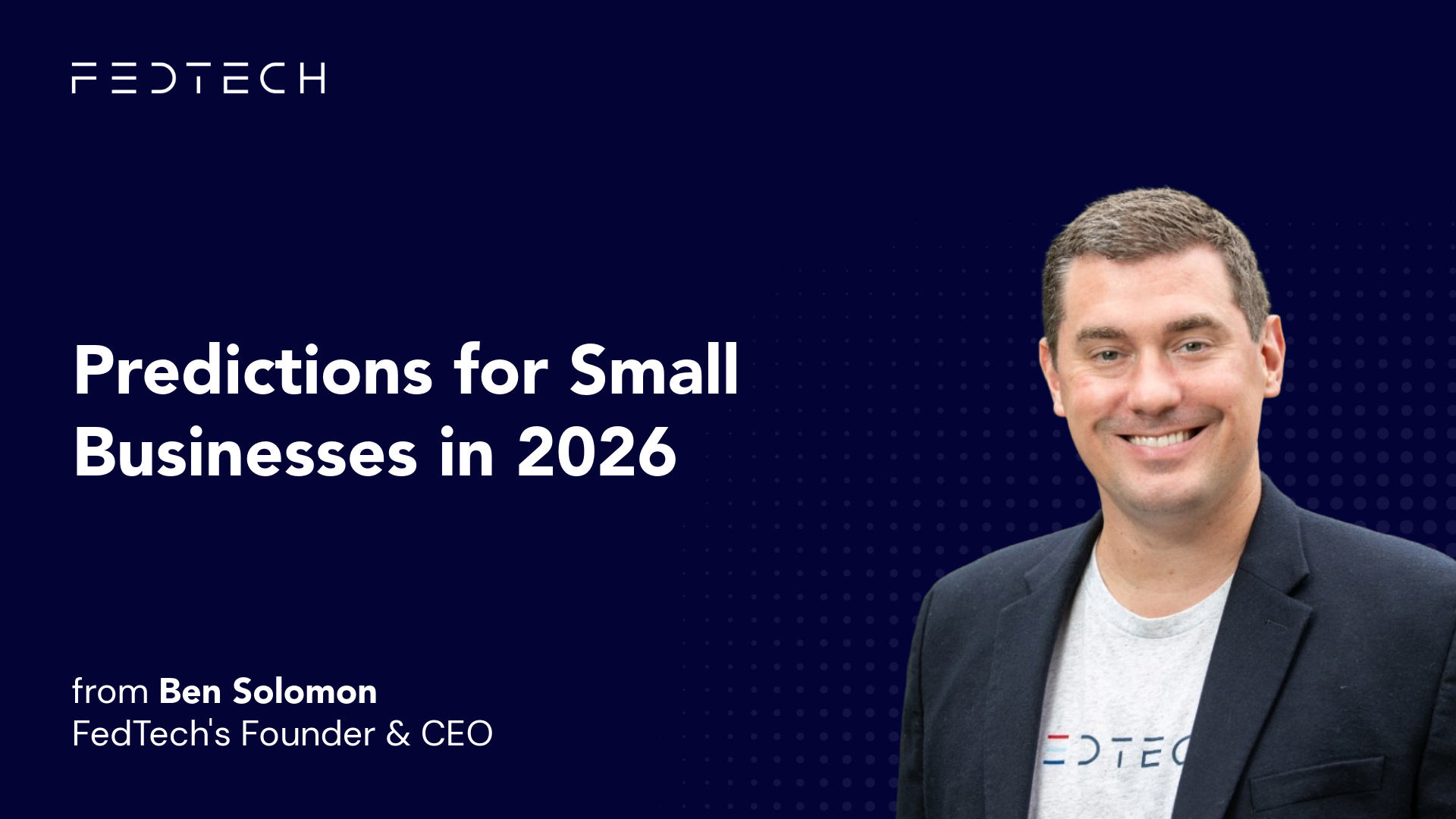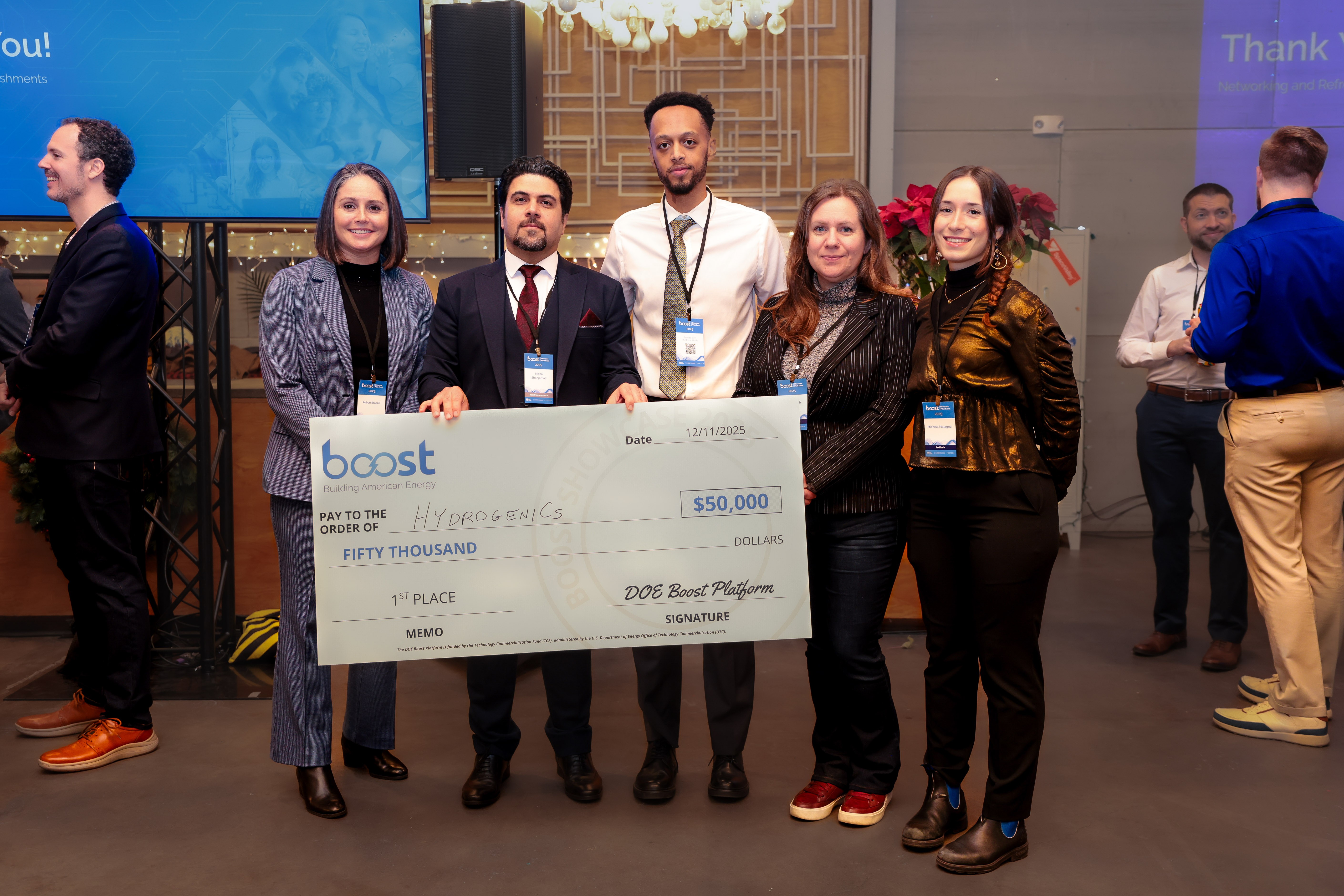FedTech10: 8 Insights from 10 Years of Innovation
As FedTech celebrates a decade of building bridges between federal R&D, entrepreneurs, and industry, we’ve gathered eight powerful reflections from our leaders and advisors. These insights highlight the lessons learned and trends shaping the future of deeptech: from federal innovation policy and global market entry to defense innovation, climatetech deployment, and commercialization strategies.
Together, they tell the story of how FedTech has grown over the past ten years and offer a vision for the breakthroughs and collaborations that will define the next decade.
1) Ben Solomon - Founder and Chief Executive Officer
Ben founded FedTech in 2015 and has led the firm through its growth from a small regional venture to an international company that catalyzes interaction between the venture world and the R&D community. He is passionate about democratizing access to deep tech and empowering entrepreneurs. Ben has taught technology commercialization at his alma mater, the University of Maryland, and previously held positions at NBC Sports and Bloomberg News. He holds a B.A. in History from Princeton University.
“Federal programs that once focused primarily on advancing technologies have evolved to meet urgent national and global challenges, with initiatives like SBIR playing a pivotal role. Originally created in 1982 to address fears of Japanese technological dominance, SBIR has since become a cornerstone of U.S. innovation policy, fueling breakthroughs that strengthen both our economy and national security.
As we look ahead to the FY26 reauthorization, the stakes are higher than ever. The challenge posed by China is broader, deeper, and more urgent than the threats of the past. The INNOVATE Act signals meaningful progress, but its impact will depend on bold budget increases, streamlined processes, and a unified vision of SBIR as a national innovation engine rather than a fragmented program.
The past decade has shown how deeply federal innovation shapes the world we live in, and SBIR remains one of the most powerful tools we have to secure America’s leadership in the decades to come.”
2) Robyn Brazzil - Chief Delivery Officer
Prior to FedTech, Robyn founded and led the startAD entrepreneurship program at NYU Abu Dhabi from its inception in 2015. She designed a unique corporate sprint accelerator program with partners including GE, Oracle, Etihad, and ADNOC, serving more than 100 global startups that collectively raised over $50 million. Before moving to the UAE, she was a trial attorney in New York. Robyn holds a BSBA and a B.A. in Psychology from UNC-Chapel Hill and a J.D. from Fordham University School of Law.
“Federal innovation has changed more in the past decade than in the prior two combined. The shift isn’t just about funding levels, it’s about how the U.S. identifies problems, builds regional capacity, and blends public and private capital to scale solutions.
A decade ago, many programs focused on advancing technologies broadly, with application and commercialization as secondary. Today, innovation is increasingly tied to mission needs, whether through DIU scouting commercial solutions for defense, DOE Clean Energy Hubs linking lab R&D to national priorities, or NSF Engines funding research aligned with national challenges.
Federal initiatives are also fueling place-based innovation, from DoD hubs accelerating dual-use adoption to the CHIPS Act and NSF Engines anchoring regional coalitions around semiconductors, biotech, and AI. Meanwhile, federal and venture models are converging through OTA agreements, prize challenges, and matching funds that blend public R&D with private capital.
Together, these trends are reshaping how the U.S. builds and scales deeptech.”
3) Geoff Odlum - Advisor
Geoff spent 28 years as a Foreign Service Officer at the U.S. Department of State, working on critical foreign policy and national security challenges. He served as a U.S. diplomat in Europe and the Middle East before moving to the private sector in 2018 to advise technology companies on entering federal markets. Geoff has mentored startups with FedTech since 2018.
“World-class innovative technologies are being developed all over the globe, and many of these companies want to enter U.S. markets. The biggest predictor of their success isn’t just the strength of their tech. It’s how well they understand and overcome U.S. market entry barriers. This includes everything from registrations like NCAGE and SAM/UEI to export rules, establishing a U.S. presence, and finding pathways to funded pilots and contracts while focusing on a few key users and problems.
Designing ‘launchpad’ accelerator programs that identify the most impactful deep tech companies globally, teach them these core requirements, and bring them to the U.S. successfully at scale delivers mission-critical benefits to the U.S. economy, national security, and the public.”
4) Hadas Webb - Director, Climate and Energy
Hadas oversees FedTech’s climate tech and clean energy portfolio. She brings experience designing entrepreneur support programs for historically underserved populations, along with expertise in energy analysis for the built environment. Hadas is passionate about helping teams deconstruct complex challenges, bringing a creative lens to traditionally analytical spaces, and advancing innovations that benefit communities most vulnerable to climate change. She holds both a B.S. and M.S. in Mechanical Engineering.
“Over the past decade, I’ve learned that game-changing energy technologies alone aren’t enough. To make energy abundant, reliable, safe, and affordable, startups must also navigate the complex path to real-world deployment.
From permitting and interconnection to market structures, workforce development, and supply chains, the challenges are as dynamic as the solutions. Whether it’s fusion, wave energy, or next-generation storage, our success depends on aligning innovation with implementation—turning bold ideas into lasting infrastructure that reshapes how the world is powered.”
5) Thomas B. Shiell, Ph.D. - Director, Technology and Commercialization Strategy
Thomas leads FedTech's Technology and Commercialization Strategy team, managing the firm’s venture studio technology sourcing process and a network spanning DoD, DOE, DHS, NASA, and top universities. He also oversees FedTech's Tech Transfer Operations Consulting and TABA advisory services. Thomas earned a Ph.D. in Physics – Materials Science from the Australian National University and was previously a research scientist at the Carnegie Institution for Science’s Geophysical Laboratory.
“Unrealized technologies are wasted value. At FedTech, we help bring hidden innovations from federal labs and universities to market.
One example is an X-ray sensing patch designed to improve the efficiency of radiation treatment for cancer patients. We sourced it, supported it from patent to startup, and now it’s a real company with pilots and funding. Seeing breakthroughs like this move from idea to impact fuels our passion for taking technologies from lab to market.”
6) Blake Alexander - Director, Defense and Commercial Innovation
Blake leads the Defense and Commercial Innovation team, driving solutions for complex defense challenges. A retired Army Colonel with 27 years of service, he brings deep expertise in national security, innovation, and strategic leadership. Previously, Blake was a Principal at the Defense Innovation Unit (DIU), where he connected academic, entrepreneurial, and R&D communities to DoD problems. He holds an M.A. in Management and Leadership from Webster University and a B.A. in Political Science from Texas A&M University.
“As FedTech celebrates 10 years of impact, I’m struck by how far we’ve come in bridging the gap between research labs, entrepreneurs, and mission needs.
What started as an idea to better connect innovation with real-world application has grown into a thriving ecosystem—supporting hundreds of startups, empowering inventors, and strengthening both industry and national security. Whether it’s supporting DARPA performers, guiding dual-use startups through INDUS-X, or mentoring founders in our accelerators, the outcomes are clear: contracts won, partnerships formed, and technologies scaled that truly matter.
The next decade will be about expanding our reach, deepening our partnerships, and continuing to prove that when you bring together the best of government, industry, and entrepreneurship, the result is innovation that changes the world.”
7) Asmod Karki - Head of Global Strategy
Asmod brings experience in technology, consulting, and entrepreneurship, with a global perspective shaped by his studies in Public Policy Analysis at Princeton and Economics at Peking University. His career spans consulting at a global firm, leading innovation at King’s College Nepal, and operational leadership in tech startups. At FedTech, he focuses on accelerating innovation ecosystems and shaping impactful tech ventures.
“The Internet and GPS are just two examples of deep tech that have transformed our world. Looking ahead, we’ll need many more technologies and inventions that don’t just create incremental improvements but truly disrupt and reshape the way we live. As global challenges grow in complexity and scale, the solutions must be equally bold.
At FedTech, we’re proud to be at the forefront of this movement, helping hundreds of partners, from government agencies and startups to corporations and universities, tackle some of the world’s most pressing problems. I’m excited for what lies ahead: for us, for the world, and for future generations.”
8) Justin Mahan - Head of Technology Partnerships
Prior to FedTech, Justin served as a Senior Non-Commissioned Officer in the U.S. Air Force, overseeing engineering installations, nuclear enterprise management, and advanced communications programs. His leadership experience in government and defense continues to shape his approach to fostering innovation and entrepreneurship. His expertise spans technology transfer, stakeholder engagement, and strategic market analysis across sectors including energy efficiency, climatetech, homeland security, and defense.
“In my three years at FedTech, I’ve seen how much impact comes from connecting great technology with the right partners and mission needs. Even in that short time it’s clear that successful innovation is less about a single breakthrough and more about steady collaboration, clear pathways to adoption, and helping ideas become mission-ready solutions.”
Recent Posts
Link has been copied.





